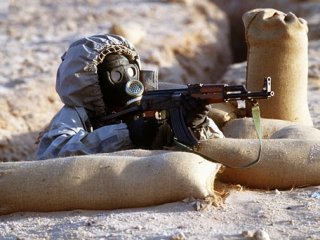The Syrian Civil War Illustrates Why Chemical Weapons Should Be Banned
Chemical weapons are often collectively labeled weapons of mass destruction, but many of them—fortunately—have a low fatality rate, serving principally as weapons of terror rather than attrition. Sarin and other nerve agents are a notable exception.
It is vital that the Syrian Civil War not lead to a further breakdown in international norms against chemical warfare, resulting in their more frequent use in conflicts across the world. Chemical weapons have repeatedly proven to be inherently indiscriminate terror weapons, and have killed far more civilians than combatants in the Syrian conflict.
However, the vast majority of civilian deaths in Syria occur due to bombardments by conventional artillery, mortars and aerial bombs—including those dropped by Russian and American warplanes as well as the Syrian Air Force. Even without the use of chemical weapons, the suffering experienced by Syrians on all sides of the conflict will continue for some time if a viable political solution does not silence these “conventional” death machines.
Sébastien Roblin holds a master’s degree in conflict resolution from Georgetown University and served as a university instructor for the Peace Corps in China. He has also worked in education, editing and refugee resettlement in France and the United States. He currently writes on security and military history for War Is Boring.
This article first appeared several years ago. It is being republished due to reader interest.
Image: Reuters

